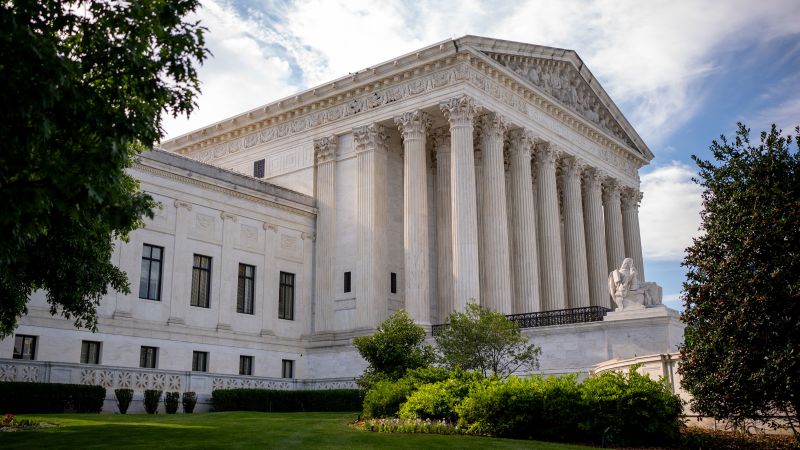The Supreme Court appeared sharply divided Tuesday in the case of a former commercial truck driver who was fired after a failed drug test he said was caused by a “CBD-rich medicine.”
A decision in the case, expected next year, could determine the ability of Americans to collect substantial damages under an anti-mob law if they lose their job after being injured by products.
The question before the court involved whether the driver, Douglas Horn, was permitted to file his lawsuit under the Racketeer Influenced and Corrupt Organizations, or RICO, Act, which authorizes civil lawsuits – and allows plaintiffs to collect triple damages – for business or property harms.
After just more than an hour of argument on Tuesday, it appeared the case could divide the court’s conservative justices, some of whom seemed sympathetic to Horn’s position and others who were wary of opening up the ability for people to seek large awards for run-of-the-mill injury claims.
Medical Marijuana Inc., and other companies involved in distributing the CBD product, argued Horn’s injury was a personal one – and therefore not a business or property harm as required in the law. That drew sharp pushback from the court’s liberal wing, especially Justice Elena Kagan.
“If you’re harmed when you lose a job, then you’ve been injured in your business, haven’t you?” Kagan asked the lawyer for the companies. The law, Kagan said, “just says if you’ve been injured by a RICO violation in your business, which includes your employment, then you’re entitled to threefold damages.”
But several of the court’s conservatives, including Chief Justice John Roberts and Justice Brett Kavanaugh, appeared concerned about opening a floodgate of RICO lawsuits for relatively minor injuries.
Kavanaugh described Horn’s position as representing a “dramatic, really radical shift in how tort shifts are brought throughout the United States.”
Horn worked as a commercial trucker for 14 years but suffered debilitating pain after a serious accident. He came across an ad for a new “CBD-rich medicine” called “Dixie X” that proclaimed to have no THC, the psychoactive ingredient in marijuana.
Horn tried the product in 2012 and failed his drug test weeks later.
He sued in the Western District of New York in 2015, alleging in part that Medical Marijuana Inc., and other companies involved in the distribution of Dixie X, violated the Controlled Substances Act and engaged in mail and wire fraud.
A federal district court ruled against Horn, but the New York-based 2nd US Circuit Court of Appeals allowed his suit to move forward. The company appealed to the Supreme Court a year ago, arguing in part that the RICO Act never contemplated “garden-variety products-liability” suits.
Allowing Horn to sue, the company has said, would vastly expand the number and type of “civil RICO” lawsuits.
President Richard Nixon signed the federal RICO Act in 1970 to give prosecutors more power to go after the heads of organized crime families. Several states have enacted their own versions of the law. In Georgia, prosecutors are attempting to use a state RICO law to prosecute former President Donald Trump for his efforts to overturn the 2020 election results there.
The federal law also permits private lawsuits by individuals who were “damaged” in “business or property” in certain circumstances.
Read the full article here


